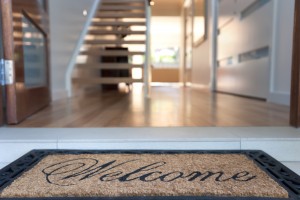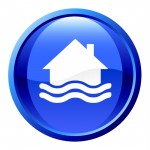Home Efficiency – Keeping $$$ In your Home
by P. Andersen
Spring brings many wonderful things to the New York region. Warmer weather, flowers, thick green grass, spending time outdoors with friends and family, perhaps a round of golf… Another benefit is the rapidly falling energy bills, as the heat is shut down and the air conditioning is still a month or two away. Now is a good time to think about ways you can better insulate your home – and your wallet – from the wildly fluctuating energy prices.
There are many ways to reduce your energy costs, from the ad hoc to the inclusive. How you go about it might be based on your budget, the age of your house, or biggest benefit derived. If you have no idea where to start, having an efficiency evaluation is a great first step. Many companies in this field will come out to inspect your home for air tightness, insulation, heating and cooling options, and appliances. Going this route will give you the ability to map out a plan, and you should be able to roll the cost of the inspection into any work that gets done.
An efficient home has many attributes, but regardless of your current home situation, starting today will help you save money over the long term. More importantly, now is a great time to get rebates and incentives for improving your home’s efficiency. Your city and state know how important this is, and will work with you to make your home less of a burden on the energy infrastructure of the region.
Here are a few of the steps you can take to improve your efficiency.
Air Tightness:
When your home leaks air, it leaks money. Heat escapes in the winter, cool air escapes in the summer. Fixing a leaky home might include replacing windows, doors, sealing up the attic or the basement. All of this will help to keep the outside air where it belongs – outside.
Insulation:
If fixing a leaking home is step 1, insulation is step 1a. Insulating your home properly is a very cost effective measure, and it will keep your living spaces at the temperature you want. There are loads of how-to videos on how to insulate your home on YouTube (from all of your favorite repair shows), or leave it to the experts to do the job right.
Heating/AC:
Having your heating and cooling systems evaluated could be a huge benefit to your home’s efficiency. Newer systems work so much better than those systems installed just 5-10 years ago, and a new system will more than pay for itself during it’s lifespan.
Another option you may not have considered (which I will address again in the fall) is installing a wood burning stove. The new pellet stoves are incredibly efficient, and they can heat most of a home from a central location. I personally have two brothers that utilize this heating source, and they rarely, if ever, turn on their heating systems during the winter. Pellets are reasonable, they utilize waste wood (saving trees), they create very little pollution, and with their feeder bins and timers make usage easier than ever.
Appliances:
Old appliances are expensive to run. Replace them with new, highly efficient models, and you will easily pay them off over the life of the appliance. Hand in hand with this is the replacement of lighting. Most of you have already moved to compact florescent lighting, but LED seems to be the wave of the future. Though more expensive, the light is less harsh and more efficient than florescent lights.
Solar:
Is your roof relatively new? Does your roof get good sunlight? Is there minimal shade? You might be a great candidate for solar. Ideally, your roof would face North/South, but East/West roofs will still work under some circumstances (though generating 10-20% less energy than a traditional southern exposure). Have an evaluation done to see if you are a good candidate, and watch your energy bills evaporate, even selling excess energy back to the town.
The most important thing is to take the leap. You don’t have to do it all at once, but each step you take will improve your homes efficiency. Remember – if you invest a little, you will get back a lot in return.
Visit these sites to learn more about home efficiency.




